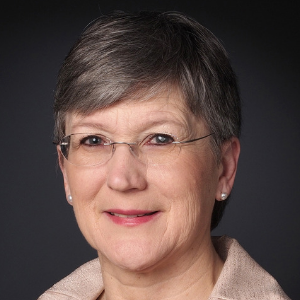From Serial Entrepreneur to Community College President
Most of what I know about being a successful entrepreneur, I learned from being an unsuccessful entrepreneur. If a “big, stupid mistake” existed, I made it at some point throughout my many entrepreneurial adventures. Most of these “oops” had not-so-devastating repercussions; however, when I put myself on my own payroll, the mistakes got more expensive, more serious, and more significant. The very essence of being a successful entrepreneur features failure, followed by retooling and finally moving forward.
In my first community college presidency and in my present position, I know that community college leadership must be grounded in fundamental entrepreneurial principles and practices. We are creating our futures and driving a success agenda for our students and communities. Being entrepreneurial leaders of entrepreneurial institutions is a heavy lift, and every day demands the deliberate, intentional and thoughtful pursuit of success for those we serve.
For the last four years, I have had the opportunity to teach an entrepreneurial boot camp in our community. During the course of this eight-week program, I share some lessons from the field, specifically from my failure-financed experiences. While none represent my original thoughts, they are kernels of wisdom gained over the decades. Thus, four “Godwinisms,” as my students affectionately label them, consistently make my list:
“When is a good time to spend money? Never.” When a need or opportunity arises, explore every possibility imaginable BEFORE spending any money. Of all the maxims that I preach, this one draws the most rolled eyes and sighs of disbelief when I first utter it. However, it is also the one that more students parrot back to me as their “go-to principle,” when they have finished the program and are actually running their own enterprises. As community college leaders, we may be tempted to commit our colleges’ resources because we do not have the time, energy, or alternative option readily available. However, exploring other options first, as appropriate and reasonable, can help us more entrepreneurially manage needs, wants and opportunities and their budgetary impact. It is not easy, and this approach demands a more precise analysis and decision-making process, what successful entrepreneurs routinely do to be successful.
“A’s hire A’s, and B’s hire C’s.” While many entrepreneurs go solo in the start-up phase, if successfully, many will make their “first hire” at some point. Smart entrepreneurs seek out top performers who are smart, bright and motivated. I encourage entrepreneurs to commit themselves to hiring people who have talents, skills and competencies that they do not have, and yes, individuals who are smarter and more capable than the entrepreneurs themselves.
Entrepreneurial community colleges take that same approach in talent recruitment. Seeking talented individuals with diverse backgrounds, skills, and experiences demonstrates a commitment to innovation, inclusion and excellence. Like any strong entrepreneur who builds a corporate culture that nurtures talent, as entrepreneurial colleges, we create support programs that provide that training in curriculum development and pedagogical methods, so that the new-to-teaching, industry-savvy faculty member can quickly and proficiently deliver quality instruction.
“There are only two kinds of people: customers and potential customers.” Successful entrepreneurs understand that virtually everyone may, at some point, become a customer. Similarly, for the entrepreneurial community college, whose mission is to serve a community, service area, or community, almost everyone is a student or a potential student. Every engagement beyond our ongoing academic and workforce offerings—a community event or career fair where we have a presence, a third-grade field trip to campus, a middle-school innovation camp, or a self-enrichment workshop—provides our college with the opportunity to “sell ourselves,” championing a mission-driven value proposition.
“Do not fall in love with your lemons.” Entrepreneurs fail. Entrepreneurial enterprises fail. Entrepreneurial initiatives by entrepreneurial colleges and their leaders fail. Even though the feasibility and market studies and the support data overwhelming confirm the need for a particular training program, that program may fail. Entrepreneurial leaders boldly address this harsh reality. They do not fall in love with their failures, their lemons. Deploying a success mindset, they determine how they can leverage what they have and what they know now--the “bird-in-the-hand” principle, according to Dr. Saras Sarasvathy’s first principle of effectuation. The entrepreneurial community college then takes its knowledge base, assesses the resources at hand, and maps a strategic path forward.
The entrepreneurial mindset, for the innovative business start-up or community college, demands a certain mindfulness that focuses on “the why” of what we are doing and how we are doing it. Strategically and effectively addressing the challenges of enrollment declines, the competition for talent, soaring operating expenses, the expanding need for 360-degree student support, the economic dynamics of both urban and rural communities, the impact of addiction and mental health issues, the explosion of technology, and a zillion other trends that wake us up in the middle of the night, a community college leader, perhaps now more than ever, needs entrepreneurial skills. We must learn how to think like entrepreneurs, act like entrepreneurs, adapt like entrepreneurs, and lead like entrepreneurs, or our colleges and communities may be less successful than our students, our faculty, our staff, and our communities deserve. The good news is that we can.
President
Patrick Henry Community College

